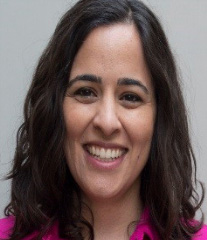Study Center
The Massachusetts Center for Birth Defects Research and Prevention is a collaboration between the Massachusetts Department of Public Health, the Slone Epidemiology Center at Boston University, the Boston University School of Public Health, and the Genetics Unit at MassGeneral Hospital for Children. The Center has been and is supported by the Centers for Disease Control and Prevention as a Center for Excellence in Birth Defects Research. The Center also draws on the expertise of the region's clinicians and researchers and fosters communication among them.
For more than 20 years, the Massachusetts Center has and will continue to perform the following activities:
- Collecting data on subjects with birth defects and identifying related trends
- Searching for causative factors linked with birth defects
- Addressing community concerns about birth defects
- Providing information and referral to families of children with birth defects
- Measuring the success of screening and prevention efforts
Current and Former Principal Investigator:
 Mahsa Yazdy, PhD, MPH is the current Principal Investigator (PI) and the Director of the Massachusetts Center for Birth Defects Research and Prevention at the Massachusetts Department of Public Health. Dr. Yazdy joined the Center in 2016, bringing with her over 10 years of experience in birth defects research. Her areas of interest in the field of birth defects research are how medications and environmental exposures during pregnancy impact the risk of birth defects. Her recent publications focused on birth defects as a consequence of Zika virus infection in pregnancy, opioid and other medication use during pregnancy, and assisted reproduction. In her role as PI and Director, she oversees the Center’s data analyses phase of the NBDPS, the participation in the BD-STEPS, and sets the research agenda of the Center. Dr. Yazdy works closely with two Co-Principal Investigators: Allen Mitchell, MD, Director Emeritus of the Slone Epidemiology Center at Boston University, and Martha Werler, DSc, Professor and Chair of Epidemiology, at Boston University School of Public Health....Read More
Mahsa Yazdy, PhD, MPH is the current Principal Investigator (PI) and the Director of the Massachusetts Center for Birth Defects Research and Prevention at the Massachusetts Department of Public Health. Dr. Yazdy joined the Center in 2016, bringing with her over 10 years of experience in birth defects research. Her areas of interest in the field of birth defects research are how medications and environmental exposures during pregnancy impact the risk of birth defects. Her recent publications focused on birth defects as a consequence of Zika virus infection in pregnancy, opioid and other medication use during pregnancy, and assisted reproduction. In her role as PI and Director, she oversees the Center’s data analyses phase of the NBDPS, the participation in the BD-STEPS, and sets the research agenda of the Center. Dr. Yazdy works closely with two Co-Principal Investigators: Allen Mitchell, MD, Director Emeritus of the Slone Epidemiology Center at Boston University, and Martha Werler, DSc, Professor and Chair of Epidemiology, at Boston University School of Public Health....Read More
 Dr. Yazdy replaced Marlene Anderka, ScD, MPH who retired after 37 years of work in maternal and child health. Dr. Anderka played a key role in expanding the Massachusetts Center and served as the Principal Investigator and the Director for 15 years...Read More Dr. Yazdy replaced Marlene Anderka, ScD, MPH who retired after 37 years of work in maternal and child health. Dr. Anderka played a key role in expanding the Massachusetts Center and served as the Principal Investigator and the Director for 15 years...Read More
Local Activities and Research:
As part of the National Birth Defects Prevention Study (NBDPS), the Massachusetts Center has led national efforts to understand the use of the wide range of medications taken by pregnant women and to evaluate whether these medications may increase the risk of birth defects. In this important and specialized area, we conduct our own investigations of the NBDPS data, and provide expert advice to researchers in other centers around the country. For NBDPS, Massachusetts researchers have and continue to:
- Study whether prescription, over-the-counter medicines and herbal preparations might increase risks for birth defects.
- Identify genetic risk factors that play an important role in whether a particular medicine increases the risk of birth defects. Families planning pregnancies can use this kind of information to avoid certain medications which could harm their babies.
- Study whether new genetic mutations can cause birth defects, such as congenital heart defects, limb deficiencies, and diaphragmatic hernia.
- Link Massachusetts birth defects surveillance data to the unique Massachusetts Pregnancy to Early Life Longitudinal database so we can identify medical services that are used and the costs and outcomes among infants with selected birth defects.
- Study the link between assisted reproductive technology and higher risks of birth defects. Massachusetts families frequently use assisted reproductive technology and our center will continue to study this problem with the hope of identifying how risks might be reduced in the future.
Collaborators:
- Massachusetts Department of Public Health
- Slone Epidemiology Center, Boston University
- Boston University School of Public Health, Department of Epidemiology
- Mass General Hospital for Children (MGH), Genetics Unit
Partners
- Brigham & Women’s Hospital
- Massachusetts Chapter of the March of Dimes Birth Defects Foundation
- Boston University School of Public Health, Department of Maternal and Child Health
- Harvard School of Public Health, Department of Environmental and Occupational Epidemiology
- Children’s Hospital Boston, Division of Endocrinology
- Children’s Hospital Boston, Department of Surgery
- Finnell Laboratory, University of Texas-Austin, Institute of Biosciences and Technology
- Seidman Laboratory at Harvard Medical School
- Bureau of Environmental Health, MA Department of Public Health
Notable Research Findings
The following are selected examples of important research publications led by the MA Center.
Werler MM, Guéry E, Waller DK, Parker SE. Gastroschisis and Cumulative Stressor Exposures. Epidemiology. 2018;29(5):721-8.
Parker SE, Van Bennekom C, Anderka M, Mitchell AA. Ondansetron for treatment of nausea and vomiting of pregnancy and the risk of specific birth defects. Obstetrics & Gynecology. 2018;132(2):385-94.
Dukhovny S, Van Bennekom CM, Gagnon DR, Hernandez Diaz S, Parker SE, Anderka M, et al. Metformin in the first trimester and risks for specific birth defects in the National Birth Defects Prevention Study. Birth Defects Research. 2018;110(7):579-86.
Yazdy MM, Werler MM, Feldkamp ML, Shaw GM, Mosley BS, Vieira VM. Spatial analysis of gastroschisis in the national birth defects prevention study. Birth Defects Research Part A: Clinical and Molecular Teratology. 2015 2015/04/06;103(6):544-53
Anderka M, Mitchell A, Louik C, Werler M, Hernández-Díaz S, Rasmussen S, and the National Birth Defects Prevention Study. Medications used to treat nausea and vomiting of pregnancy and risk of selected birth defects. Birth Defects Res A Clin Mol Teratol 2012; 94(1):22-30.
Mitchell AA, Gilboa SM, Werler MM, Kelley KE, Louik C, Hernández-Díaz S; National Birth Defects Prevention Study. Medication use during pregnancy, with particular focus on prescription drugs: 1976-2008. Am J Obstet Gynecol. 2011; 205(1):51.e1-8.
|